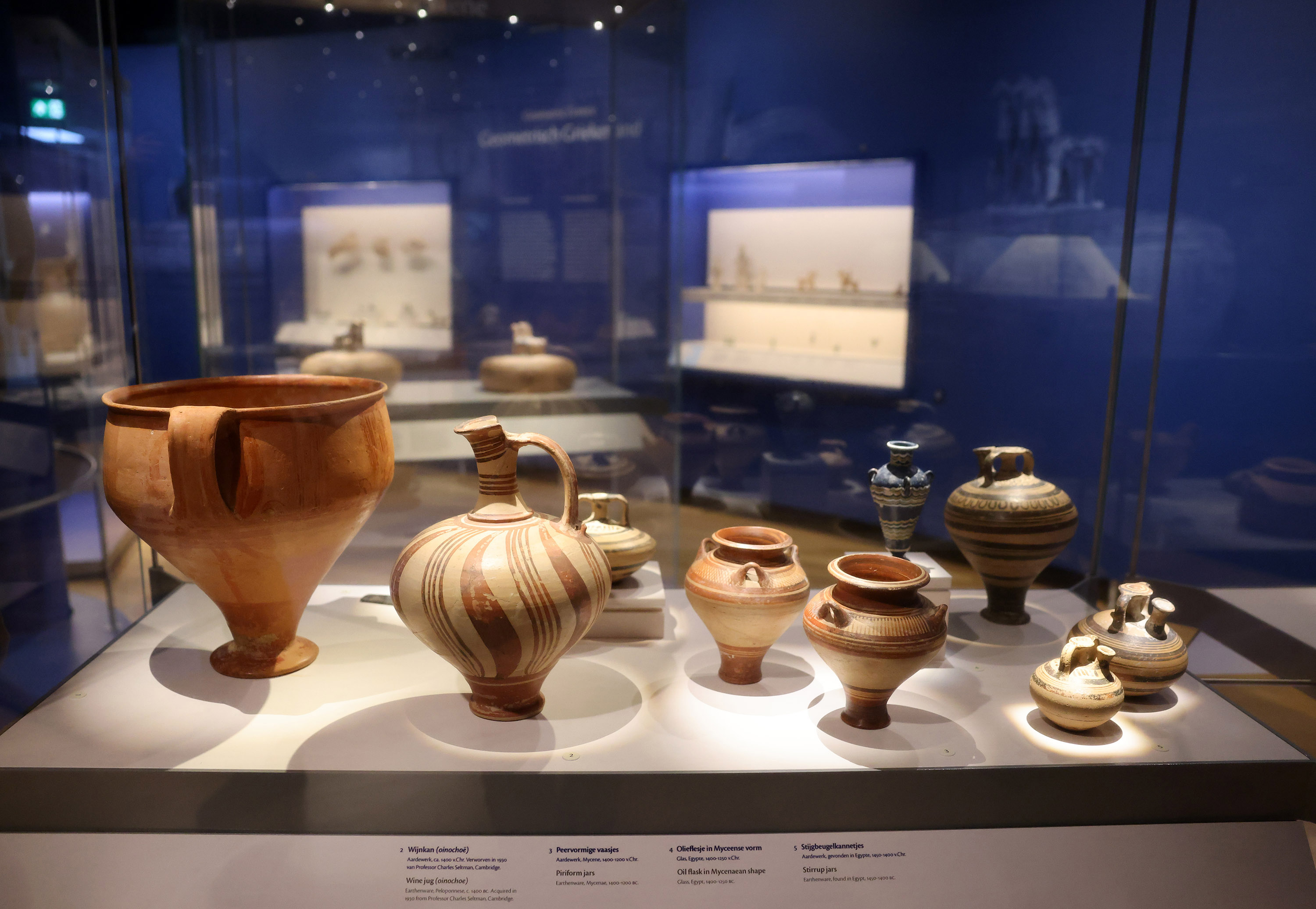Cyprus Mail 18 February 2025 - by Charalambos Stylianou
 |
| The Rijksmuseum van Oudheden in Leiden, the Netherlands, which houses Cypriot antiquities |
Archaeologists from Leiden University and the University of Cyprus have uncovered new evidence at the Chalcolithic settlement of Palloures in Chlorakas, revealing its critical role in Cyprus’ early trade networks and cultural evolution.
The latest excavation season, which concluded last week, unearthed intact ceramics, metal artefacts and architectural structures that reshape historical perspectives on the island’s past.
Chlorakas, a historically significant coastal village, sits along ancient maritime routes that connected Cyprus to the wider Mediterranean. The discoveries at Palloures confirm that the settlement played a key role in trade and cultural exchange during the Chalcolithic period, 4,500-3,500BC.
At a recent presentation at the Rijksmuseum in Amsterdam, Professor Bleda During and Dr Maria Hadjigavriel showcased their findings to Cypriot journalists based in the Netherlands. The event, organised by the Dutch embassy in Cyprus, underscored the Netherlands’ commitment to advancing research on Cypriot heritage. The presence of Cypriot journalists was vital in bridging international academic efforts with local audiences, ensuring that discoveries reached the communities most connected to Cyprus’ history.
Among the most striking discoveries are well-preserved pottery pieces found in their original domestic settings, an archaeological rarity. Scientific analyses confirm that many ceramics originated from different regions of Cyprus, reinforcing evidence of an interconnected trade system.
“These findings show that Cyprus was not isolated but engaged in active trade with settlements across the island,” said Hadjigavriel.
“Chlorakas, in particular, emerges as a hub of exchange and craftsmanship, challenging previous assumptions about the region’s economic development.”
During highlighted the role of advanced technology in revolutionising their research.
“Techniques like DNA testing and 3D photogrammetry allow us to extract far more detail than ever before,” he explained.
“We now see a clearer picture of daily life, craftsmanship and trade in ancient Cyprus.”
The excavation also provides new insights into the social structure of the period. Unlike later eras, where rigid gender roles were evident, no clear division between men’s and women’s work has been found at Palloures.
“This is a fascinating aspect of the site,” Hadjigavriel said.
“It suggests a more egalitarian society than previously believed.”
The findings will be further examined in upcoming fieldwork in March, with plans to publish a comprehensive study documenting the excavation’s results.
“Our work is far from over,” said During.
“These discoveries reshape our understanding of Cyprus’ past, and we are only beginning to unlock its secrets.”
With each excavation season, the Palloures project continues to transform archaeological knowledge, reinforcing Chlorakas’ role as a vital centre of trade and culture in the ancient Mediterranean.
